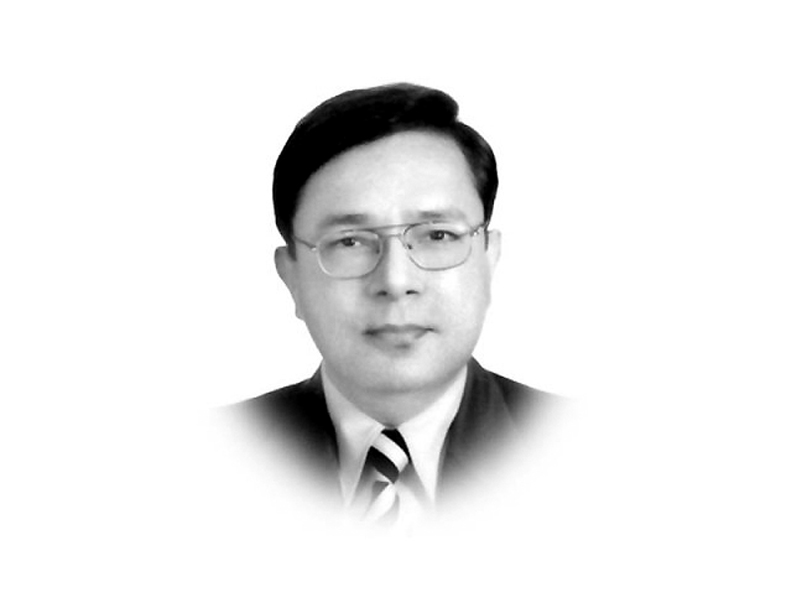
Is the voter turnout (55 per cent) in the recent elections new? No, previously it was over 63 per cent in 1970 and 55 per cent in 1977. Is the PPP’s defeat in these elections something new? No, the PPP’s performance was worse in the 1997 elections when it secured only 18 National Assembly seats. In Pakistan’s electoral history, no ruling/incumbent party ever won the elections except the highly controversial election of 1977. The PML-N will have power in Islamabad for the third time and in Punjab for the fifth time under the leadership of Nawaz Sharif. Similarly, in Sindh, the PPP will form the government for the sixth time. Nothing is new about the MQM either, which easily secured all its safe seats except the NA-250 one. The performance of the JUI-F, the PML-F, nationalist parties and other small parties is the same. Regardless of party affiliation, the overwhelming majority of newly-elected members have previously been members of either the National Assembly or the provincial assemblies. Only the independents are slightly greater in number compared with the past. And it is also not new that the majority of independents, including Fata members, have joined the ruling party, the PML-N.
There was hardly any survey, which did not predict the PML-N’s victory. I also made a safe prediction about its success along with the PTI’s seat gains in my column “A hypothetical column — 2013 election results” published in these pages on April 30. As far as the PTI and Imran Khan are concerned, the election results proved my assessment true. However, I confess that I had failed to assess the PPP’s performance, particularly in southern Punjab. The election results are really a big surprise, rather a shock, to the PTI’s supporters. They were hoping for a landslide win for the PTI. The PTI’s leadership and pundits on the electronic media are responsible for this hype.
It is a misnomer that for the first time, a democratically-elected government is transferring power to another elected political party. That already happened after the 2008 elections. It is also another misnomer that the “upper class elite” of urban posh areas has voted for the first time. Historically, the voter turnout has always been lower in the rural “poor classes” of the shanty towns of Pakistan. It is also not new that many have not accepted the election results.
In Pakistan, we have never seen a single party form the government at both the centre and in all the provinces. In other words, the current highly polarised or regionalised politics is also not a new phenomenon. Some writers are calling the PTI’s partial victory in Khyber-Pakhtunkhwa a sign of change. It is not. The PTI has emerged as the single largest party there, not a majority party. If we take the PTI as a “third political force”, the performance of the MMA in the 2002 elections as a “third force” was far better than the PTI’s. In a nutshell, if the change of guards at the Quaid’s mausoleum is considered a real “change”, then we can consider the new scenario that has emerged as equivalent to a change of “old guards” in a “new” Pakistan.
Published in The Express Tribune, May 28th, 2013.
COMMENTS (13)
Comments are moderated and generally will be posted if they are on-topic and not abusive.
For more information, please see our Comments FAQ

1729161093-0/liam-(4)1729161093-0-165x106.webp)










@kaalchakra: "Abid P. Khan, thank you, Khan Sahib. I liked that phrase and knew that it had to be said by a Muslim. Americans are good at nothing but stealing credit from us. :(" . Excuse me I did not say that Kennedy or Gibran were Muslims. You may check some source where it would state that Khalil Gibran Khalil, was born in a Maronite Christian family. His mother was daughter of a Christian priest. (I was wrong in saying that the family settled in NY. They passed through there but finally settled in Boston). . Some sources claim Gibran had only quoted this but the saying originates from Marcus Tullius Cicero. I don't know whether Muslims have a monopoly on certain sorts of sayings.
Abid P. Khan, thank you, Khan Sahib. I liked that phrase and knew that it had to be said by a Muslim. Americans are good at nothing but stealing credit from us. :(
@jump: "from a “PhD scholar” one expects thoroughness..i dismissed the article after the the first line..the quote is by Rita Mae Brown and is incorrectly attributed to AE….it is requested that if you must bust up your “PhD” credential then back it up" . Once ran into a collection, listing wrongly credited quotes, supposedly by some of the famous personalities of the world. . My favourite though is,"Ask not what a country can do.....". JFK's speech-writer snuck it in. Kennedy got the credit. The real person behind the saying, was another addressing his own countrymen. When the French Colonialists were on their way out from the Middle East, chopped the region into newer countries, Khalil Gibran the Lebanese, then a resident of NY, pitied them, who felt paralysed, then he said this. Not JFK. . Among others Gandhi's name.
from a "PhD scholar" one expects thoroughness..i dismissed the article after the the first line..the quote is by Rita Mae Brown and is incorrectly attributed to AE....it is requested that if you must bust up your "PhD" credential then back it up
@dk_indian: How is our local politics any of your business??? Let me share a joke Once a man was travelling in a train, for the sake of passing time he initiated the conversation with a boy sitting next to him. The man asked the boy to talk about Pakistan. Before the conversation got started, the boy asked the man, why are pumpkins yellow in Pakistan, red in India and white in Bangladesh? Man being perplexed with the question answered, "I don't know". At this the boy stated "Pata tumahin Kadoo ka nahi hai aur baat karoge Pakistani politics pe."
@Shabbir Ahmad Khan: kindly refrain from corrupting the youth.
for the first time the Pakistani public were able to exercise their constitutional right by voting a party out of government immediately after the completion of their term in office.
"It is a misnomer that for the first time, a democratically-elected government is transferring power to another elected political party. That already happened after the 2008 elections."
Huh? You consider the gerry-mandered elections conducted by a dictator in 2002 when the leaders of 2 of the largest parties were note even allowed to enter the country as free and fair elections?
"There was hardly any survey, which did not predict the PML-N’s victory. I also made a safe prediction about its success along with the PTI’s seat gains in my column “A hypothetical column — 2013 election results” published in these pages on April 30."
You did no predict PML-N coming to power. You in fact had predicted that PPP would lead a coaliation at the center along with its allies. you also said that while PML-N would get a large number of votes, it would not be able to tranlate it to a proportionate number of seats. So your 'safe' prediction proved titally incorrect.
A very truthful and analytical Op Ed and Bangash once again hit the target. The lie that PTI is a young and revolutionary party is far from truth. In fact IK is of the same age or older than Sharif and Zardari. These leaders past their retirement age and prime cannot bring the changes they have been talking about. Even the KPK CM is no spring chicken. In the new cabinet of Sharif brothers same old faces would appear. Most of Pakistani parties are run by one man or family. They are all lifetime chiefs of their parties and keep claiming about the changes they can bring about. PTI had its best chance in its two decade history and they did not avail it. There is not going to be a vacuum again in Pakistan where TTP would force the opposite parties out of elections on gunpoint. No real leaders are made in their 60's and 70's the age when these above leaders would be on next elections. More than 35 years after the death of ZAB PPP was ruling Pakistan. PTI minus IK would be nothing after a few years.
"Albert Einstein said that “the definition of insanity is doing the same thing over and over again and expecting different results”."
Einstein was mistaken: every particle physicist knows lives for the one-in-a-billion chance of that rare collision in a cloud chamber that could reveal new physics and lead to a Nobel Prize. It has happened more than once!
@shabbir ahmad khan: Albert Einstein said that “the definition of insanity is doing the same thing over and over again and expecting different results”. . What else had Albert in his repertoire about insanity? Repeating the same hackneyed phrase ad infinitum.
The change in the portfolio is not the “change” the people of Pakistan were looking for. Sir how can you make such a sweeping statement when whatsoever the result is.....it belongs to the people of Pakistan. isn't?....i do understand that you might was looking for something other than what came out. however you alone cannot present the people Pakistan. so this sentence shows a little undemocratic tendencies within your democratic mind....if it is so
Pls dont write just for sake of writing. How much money did you make in betting? Asking as you say "I also made a safe prediction about its success along with the PTI’s seat gains in my column “A hypothetical column — 2013 election results” published in these pages on April 30"